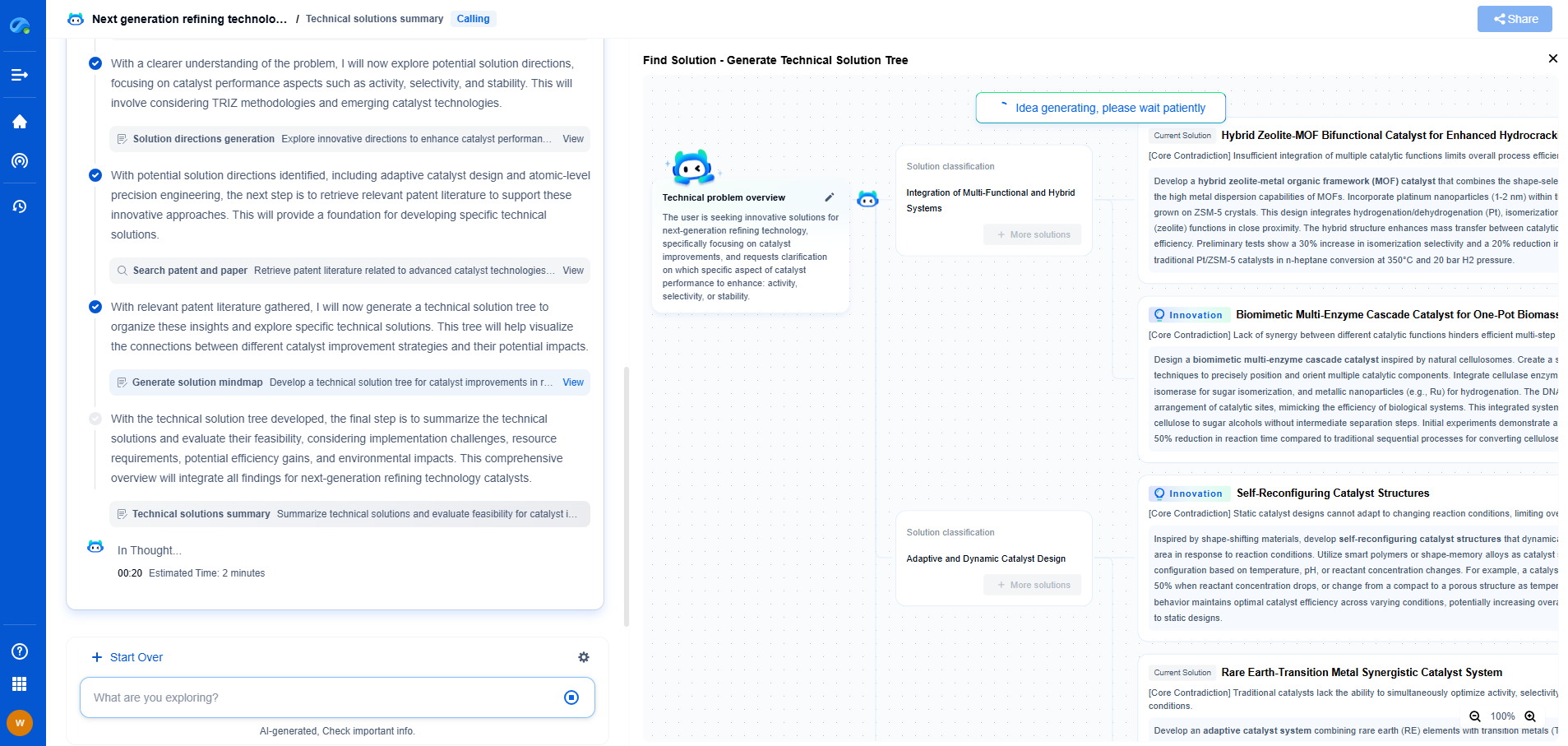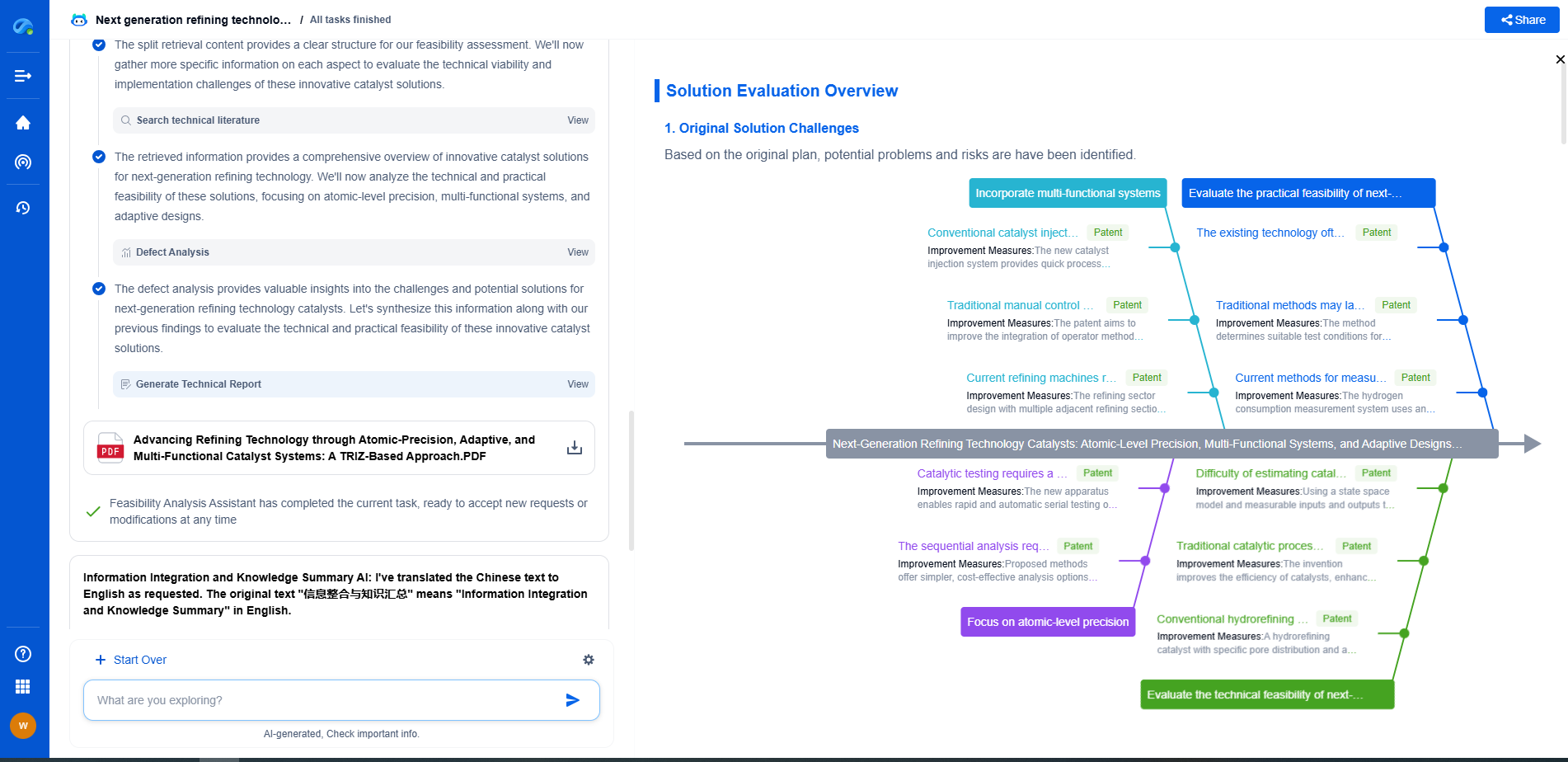Essential Tools for Testing Magnetic Field Strength in Industrial Settings
JUN 26, 2025 |
In industrial settings, understanding and controlling magnetic fields is crucial for ensuring the safety and efficiency of operations. Whether it's in manufacturing, electronics, or energy sectors, magnetic fields play a pivotal role in the functionality of equipment and processes. Testing the strength and characteristics of these fields is essential, and having the right tools can make all the difference. This article delves into the essential tools used for testing magnetic field strength in industrial environments, highlighting their features and applications.
Magnetometers
Magnetometers are fundamental tools used to measure magnetic field strength. These devices can detect and measure magnetic fields with high precision, making them indispensable in industrial applications. There are several types of magnetometers, including fluxgate, Hall-effect, and proton precession magnetometers. Each type has its specific use case and advantages.
Fluxgate magnetometers are known for their high sensitivity and stability, making them ideal for measuring weak magnetic fields. Hall-effect magnetometers, on the other hand, are excellent for applications requiring measurements of strong magnetic fields. They are commonly used in industries like automotive and aerospace. Proton precession magnetometers, although less common in industrial settings, provide absolute measurements and are often used in geophysical surveys.
Gaussmeters
Gaussmeters, also known as teslameters, are specialized instruments designed to measure the magnetic flux density. They are widely used in industrial environments to ensure that magnetic fields are within safe and functional limits. Gaussmeters come in both analog and digital formats, with digital versions offering higher precision and ease of use.
Industries such as electronics and manufacturing benefit significantly from using gaussmeters. They help in maintaining the integrity of magnetic circuits and ensuring that magnetic interference is minimized. Furthermore, gaussmeters are crucial in quality control processes, where they verify that products meet specific magnetic field standards.
Magnetic Field Analyzers
Magnetic field analyzers are versatile tools that provide comprehensive insights into magnetic field characteristics. Unlike gaussmeters, which focus on flux density, magnetic field analyzers can measure various parameters, including frequency, waveform, and vector components. This makes them particularly useful in complex industrial settings where multiple magnetic field variables must be monitored.
These analyzers are commonly used in sectors such as telecommunications and power generation, where understanding the interaction between magnetic fields and other physical phenomena is crucial. Their ability to provide a detailed analysis makes them invaluable for troubleshooting and optimizing industrial processes.
Magnetic Field Probes
Magnetic field probes are essential for accessing hard-to-reach areas and measuring localized magnetic fields. They are often used in conjunction with gaussmeters and magnetometers to provide a more detailed understanding of magnetic field distribution. These probes come in various shapes and sizes, tailored to specific industrial applications.
In industries like semiconductor manufacturing, where precision is paramount, magnetic field probes help in identifying localized anomalies that could affect product quality. By offering a precise, localized measurement, they assist engineers in developing solutions to mitigate unwanted magnetic interference.
Data Loggers
Data loggers provide a comprehensive solution for monitoring magnetic field strength over time. These devices record magnetic field data continuously, allowing for detailed analysis and trend identification. They are particularly useful in industrial settings where magnetic field conditions fluctuate significantly.
Data loggers find applications in industries such as renewable energy, where they monitor the magnetic fields around wind turbines and solar panels to ensure optimal operation. By providing long-term data, these loggers help in predictive maintenance and in preventing potential failures due to magnetic interference.
Conclusion
Testing magnetic field strength in industrial settings is a critical component of maintaining operational safety and efficiency. The tools discussed above—magnetometers, gaussmeters, magnetic field analyzers, magnetic field probes, and data loggers—each play a unique role in achieving this goal. By selecting the appropriate tool for the specific industrial application, businesses can ensure that their operations remain safe, efficient, and compliant with industry standards. Understanding and utilizing these essential tools can lead to significant improvements in industrial processes and product quality.
Empower Electromagnetic Innovation with Patsnap Eureka
From high-frequency antenna arrays and electromagnetic shielding to plasma propulsion and wave-based energy transfer, the electromagnetic domain sits at the core of next-generation technologies. Yet navigating its vast landscape of patents, research papers, and evolving technical standards can be time-consuming and complex.
Patsnap Eureka, our intelligent AI assistant built for R&D professionals in high-tech sectors, empowers you with real-time expert-level analysis, technology roadmap exploration, and strategic mapping of core patents—all within a seamless, user-friendly interface.
👉 Experience Patsnap Eureka today and transform how your team navigates the complexity of electromagnetic innovation.
- R&D
- Intellectual Property
- Life Sciences
- Materials
- Tech Scout
- Unparalleled Data Quality
- Higher Quality Content
- 60% Fewer Hallucinations
Browse by: Latest US Patents, China's latest patents, Technical Efficacy Thesaurus, Application Domain, Technology Topic, Popular Technical Reports.
© 2025 PatSnap. All rights reserved.Legal|Privacy policy|Modern Slavery Act Transparency Statement|Sitemap|About US| Contact US: help@patsnap.com

